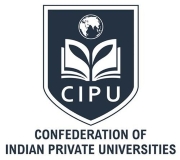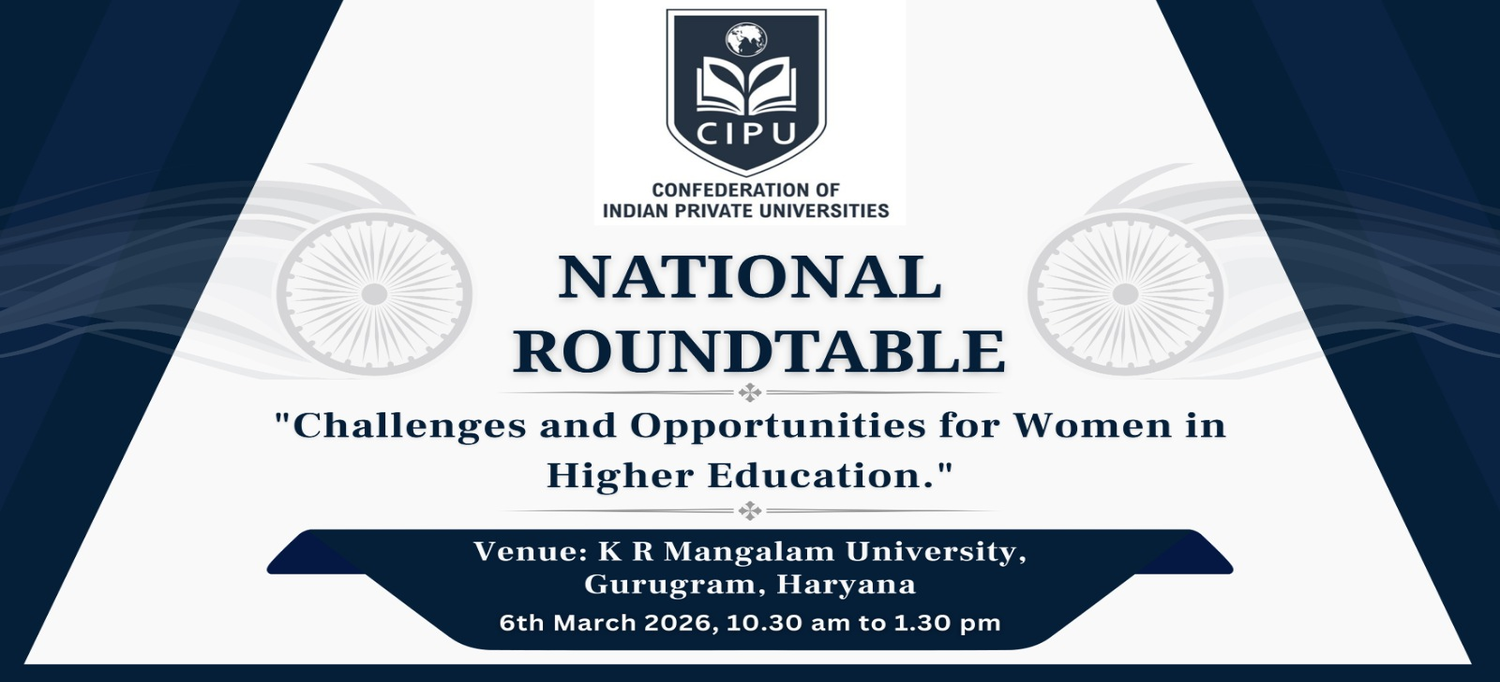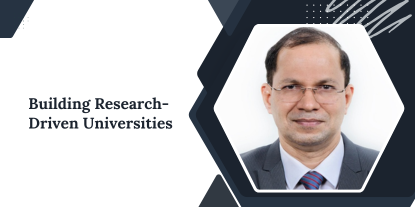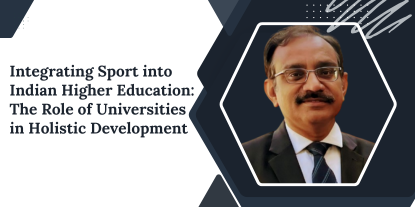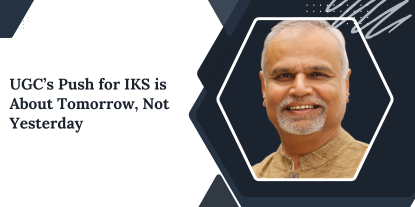
|
Dr. Bhushan Patwardhan
National Research Professor–Ayush. Formerly Vice Chairman UGC and Chairman NAAC |
Knowledge Reclaimed
Since the National Education Policy recommended and the University Grants Commission (UGC) notified the integration of Indian Knowledge Systems (IKS) into higher education, a wave of critical articles has appeared in the selected media. These reactions echo the fading voices of Macaulay’s grandchildren, intellectual heirs of colonial education who became more bound to its mindset than the original architects of distortion. Their gaze remains fixed in the nineteenth century, dismissing Bharatiya Jnana Pranali as myth or propaganda. What they fail to recognize is that IKS is not about self-praise or nostalgia. It is about nurturing innovation, originality, and creativity for the future.
If critics paused to reflect, they might ask themselves what allowed Europe to leap from the Dark Ages to the Renaissance. The answer is clear. Europe’s Enlightenment did not arise in isolation. Advances in mathematics, astronomy, medicine, linguistics, and philosophy were shaped by knowledge transmitted through encounters with Bharat and other ancient civilizations. To ignore this is to perpetuate historical amnesia. Every civilization builds education on its own foundations: Western curricula teach Greek philosophy, Roman law, and Enlightenment rationalism with confidence; China draws from Confucian traditions; Japan weaves Zen into design and management; Islamic scholarship celebrates Avicenna and Al-Farabi. Why then should India alone be hesitant about its heritage.
Complementing Modern Science
Integrating IKS does not mean undermining modern science. It strengthens it by offering fresh perspectives and ethical direction. Laboratories, digital tools, and biomedical research remain indispensable. What IKS provides is a complementary horizon that opens doors science by itself has not yet explored.
Panini’s Ashtadhyayi anticipated structures that underpin computational linguistics and natural language processing. Aryabhatta’s models of planetary motion and mathematics foreshadowed insights Europe rediscovered centuries later. Chanakya’s Arthashastra articulated principles of political economy, governance, and diplomacy still relevant to policy today. IKS continues to offer new pathways. Indigenous water harvesting resonates with modern sustainability. Nyaya and Buddhist traditions of reasoning enrich debates on ethics in artificial intelligence and biotechnology. Far from retreating from modernity, IKS integration aligns education with science, ethics, and global responsibility.
Ayurveda and Yoga: Living Traditions
The contemporary relevance of IKS is best illustrated through Ayurveda and Yoga. Both have evolved from neglected traditions to globally recognized disciplines. Ayurveda is more than a healthcare system; it is a conceptual framework that has seeded new sciences. Charaka and Sushruta described frameworks of health and surgery that likely influenced Hippocrates and Galen. The idea of Ayurvedic biology and Ayurgenomics has emerged, integrating genomic profiles with traditional typologies to advance personalized medicine. The approach of Reverse Pharmacology, pioneered in India, begins with long-standing safe clinical use and validates it systematically, creating efficient and affordable drug discovery pipelines. Such innovations show how traditional insights can transform modern healthcare.
Yoga, once dismissed as mysticism, is now prescribed worldwide. Rigorous trials at AIIMS, Harvard, and Stanford confirm its benefits in reducing stress, improving cardiovascular health, and preventing diabetes. The World Health Organization (WHO) recognizes Yoga as a valuable intervention for non-communicable diseases. From schools to corporate programs, Yoga has become a global public health movement. The WHO’s Global Centre for Traditional Medicine in Jamnagar, India, already partners on evidence-based Ayurveda and Yoga research. Ayurveda and Yoga exemplify that Indian traditions are not relics but living systems that continue to inspire innovation, affordability, and global collaboration.
Innovation Through Roots and Wings
India produces vast talent but struggles with originality. Our brightest students excel in implementing imported theories but rarely create new ones. IKS can help correct this imbalance by providing roots that ground us and wings that help us soar.
Mathematics is a reminder of this depth. The concept of zero, the place value system, and algebraic methods described in the Sulbasutras laid the
foundations for modern calculus, computer science, and cryptography. Panini’s rule-based grammar anticipates structures central to scientific computing, coding for artificial intelligence. These contributions show how knowledge systems thrive when traditions meet and evolve. To deny this heritage is to deny India the confidence to innovate again.
Beyond Colonial Shadows
The issue is not whether to integrate IKS but why it was excluded for so long. Colonial education was designed to create clerks, not thinkers. Macaulay’s Minute on Indian Education explicitly sought to detach Indians from their culture and languages. The result was generations who admired only the West and doubted their own civilization.
It is tragic that some intellectuals still echo this colonial design. These voices, Macaulay’s grandchildren, cling to narratives that once tried to erode the soul of Bharat. Yet that soul is Sanatan, eternal, and cannot be extinguished. The resurgence of IKS is not a political slogan but a civilizational correction. It restores continuity and balance, enabling education to cultivate originality and self-knowledge.
Towards an Integrative Education
If India does not develop scholarship in IKS, we risk exporting intellectual resources for others to patent. Embedding IKS in higher education ensures India remains a producer of knowledge, not a passive consumer. Education, strained by hyper-specialization, needs renewal. The panchakosha framework, describing body, mind, intellect, intuition, and spirit, anticipates holistic models of learning now sought worldwide.
A well-designed curriculum must be critical, inclusive, and dialogical. It should embrace Vedic and Sanskrit texts, Buddhist rationalism, Jain logic, Bhakti and Sufi traditions, and Adivasi wisdom. It should connect Panini with computational linguistics, Aryabhatta with astrophysics, Chanakya with policy, Charaka and Sushruta with modern medicine, and Patanjali with psychology. This is not about replacing science with tradition, but about creating plural knowledge systems that produce globally competent and locally rooted thinkers.
In sum, the criticisms against UGC’s initiative show that Macaulay’s shadow still lingers in parts of our intellectual life. But Bharat can no longer remain bound by colonial frameworks. Integrating IKS is not about glorifying the past but preparing for the future. It restores confidence, stimulates innovation, and equips India to contribute uniquely to global challenges. Bharatiya Jnana Pranali is profound, dynamic, and Sanatan. The UGC has chosen a path of wisdom, and India’s universities must now carry it forward with courage and imagination.
